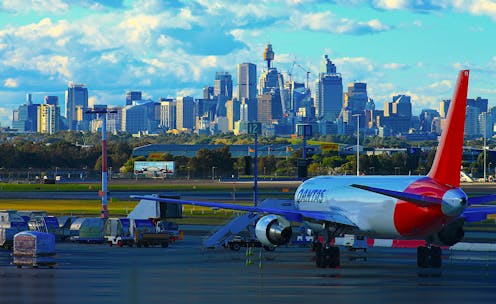Border opening for skilled workers, students delayed a fortnight
- Written by Michelle Grattan, Professorial Fellow, University of Canberra
 John Mackintosh/Shutterstock
John Mackintosh/ShutterstockThe Morrison government has delayed its plan to open the international border on Wednesday to skilled workers and students, as it awaits more information about the Omicron variant of COVID.
Cabinet’s national security committee on Monday night paused the reopening – that also included humanitarian, worker...
Read more: Border opening for skilled workers, students delayed a fortnight













